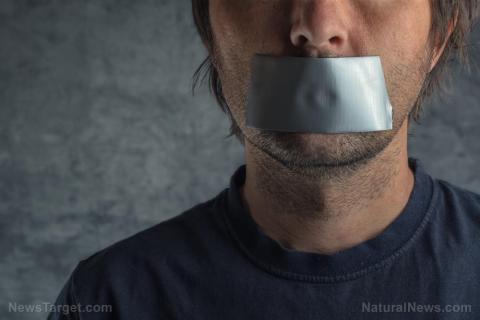The US Government's Vast New Privatized Censorship Regime

Jenin Younes RON PAUL INSTITUTE
One warm weekend in October of 2020, three impeccably credentialed epidemiologists—Jayanta Bhattacharya, Sunetra Gupta, and Martin Kulldorff, of Stanford, Oxford, and Harvard Universities respectively—gathered with a few journalists, writers, and economists at an estate in the Berkshires where the American Institute for Economic Research had brought together critics of lockdowns and other COVID-related government restrictions. On Sunday morning shortly before the guests departed, the scientists encapsulated their views—that lockdowns do more harm than good, and that resources should be devoted to protecting the vulnerable rather than shutting society down—in a joint communique dubbed the "Great Barrington Declaration," after the town in which it was written.
The declaration began circulating on social media and rapidly garnered signatures, including from other highly credentialed scientists. Most mainstream news outlets and the scientists they chose to quote denounced the declaration in no uncertain terms. When contacted by reporters, Drs. Anthony Fauci and Francis Collins of the NIH publicly and vociferously repudiated the "dangerous" declaration, smearing the scientists—all generally considered to be at the top of their fields—as "fringe epidemiologists." Over the next several months, the three scientists faced a barrage of condemnation: They were called eugenicists and anti-vaxxers; it was falsely asserted that they were "Koch-funded" and that they had written the declaration for financial gain. Attacks on the Great Barrington signatories proliferated throughout social media and in the pages of The New York Times and Guardian.



























